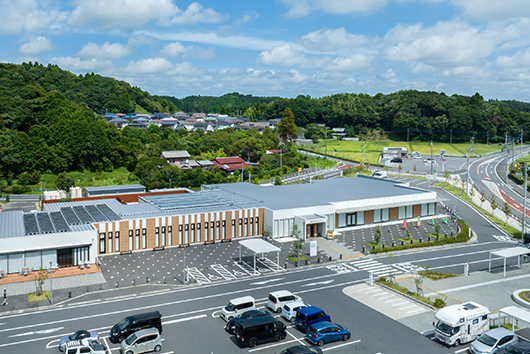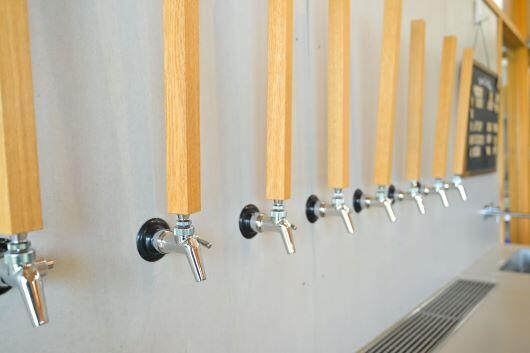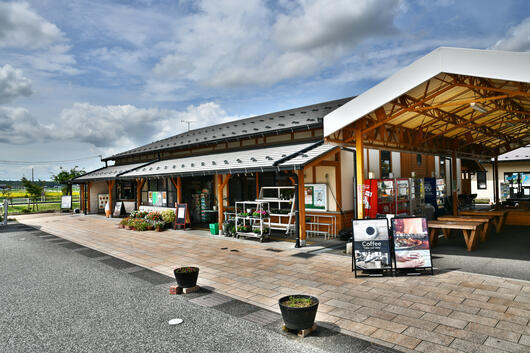"Sixth-sector industrialization" refers to agricultural, forestry, and fishery workers comprehensively engaging in not only the original primary industries of agriculture, forestry, and fishing, but also secondary industries (industry and manufacturing) and tertiary industries (retail and services), by taking on an integrated approach from food processing to distribution and sales, or by running restaurants using the agricultural products they have grown themselves.
The 6th industrialization has the benefit of securing employment and increasing income for those working in the agricultural, forestry, and fishery industries, and is being implemented nationwide. While there are success stories, there are also cases where it has not been successful due to a lack of personnel in the production and management systems, struggles with creating attractive products, and struggles with promotion and securing sales channels.
In this article, we will introduce the "regional sixth-industry development" that we have undertaken through the management and operation of roadside station, in which agricultural production organizations (primary industry), processed food businesses (secondary industry), and roadside station (tertiary industry) leverage each other's strengths and work together to develop, manufacture, and sell attractive, competitive, original processed foods.
INDEX
- Planning and Developing New Processed Foods that Utilize the Sales Channels and Needs from Customers of Roadside Station
- Is Delicious Not Enough? How to Make "Processed Foods that Sell"
- 1. Product Development Utilizing Human Resources and Know-How
- 2. Product Development that Reflects Customer Opinions
Planning and Developing New Processed Foods that Utilize the Sales Channels and Needs from Customers of Roadside Station
First, in the development of processed foods by local production and processing groups, there is a tendency to develop, manufacture, and sell "product-out"-oriented products based on their own agricultural products and manufacturing systems, and since these products do not necessarily meet customer needs, they can have difficulty in selling. Therefore, at roadside stations that PCKK operates, we have been working to strengthen best-selling products that meet customer needs based on product sales information and purchaser attribute information (gender, age, or purchased products).
In recent years, we have been one of the first to adopt the latest customer information analysis tools that utilize IoT, and by grasping non-purchaser attribute information (gender and age of roadside station visitors), we are using this information to purchase new products and plan and develop new products and services in response to hidden customer needs that have not yet been revealed.
The main customer demographic at roadside stations are generally middle-aged and senior citizens, but at roadside station in Kora Town, Shiga Prefecture, which PCKK operates, we target middle-aged women, who have a high number of visitors but a low rate of product purchases. We propose types of processed foods that have not previously been shipped to roadside stations to a production and processing group established by local farmers, and work together with them to plan and develop them.
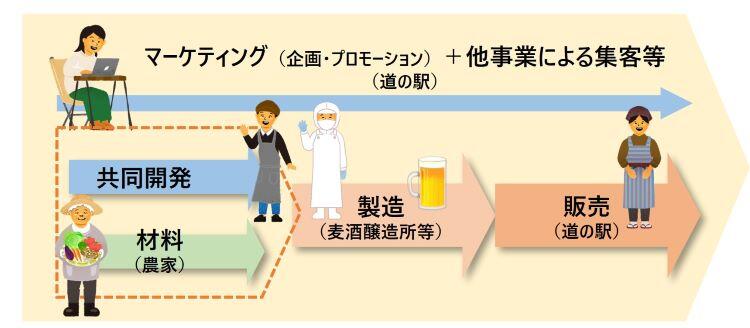
Is Delicious Not Enough? How to Make "Processed Foods that Sell"
In order for the processed foods sold at roadside stations to sell as "souvenirs", they must of course be "delicious", but they also need to have some appeal to tourists that makes them "unique" in other ways than just taste, such as the agricultural, forestry, and fishery product brand, processing method, or unique flavor that is "not found in other similar products", or the "maker's commitment/story".
However, existing 6th industry businesses and organizations often have limited knowledge and skills among their staff, and struggle to plan and develop "sellable" processed foods that have appeal beyond just "taste".
We will introduce the initiatives we are taking at a roadside station operated by PCKK to add value and improve the appeal of processed foods.
1. Product Development Utilizing Human Resources and Know-How
PCKK employs former restaurant owners as staff in the roadside station's food and beverage department, developing recipes for food and beverage menus, ready-to-eat dishes, bento boxes, and sweets, and providing cooking and manufacturing guidance. By utilizing these human resources and know-how, we are able to support developing attractive products that take into consideration the agricultural products, manufacturing techniques, and personnel systems of local businesses and organizations.
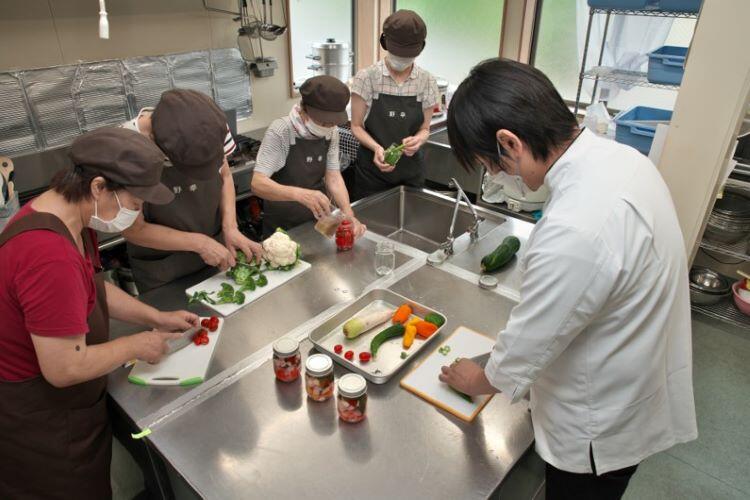
2. Product Development that Reflects Customer Opinions
We also conduct test sales of prototype processed foods at the roadside station and surveys of customers to improve our recipes based on the feedback and opinions of our customers.
Effective Promotion and Branding that Leads to Purchases
No matter how delicious a processed food is or how much effort the maker puts into it, it won't generate sales unless consumers are aware of its existence and appeal, and actually pick it up in stores and buy it.
In recent years, stylish packages designed by external designers have been increasingly used for processed foods by the sixth industries. However, in many cases, there is not enough effort to actually attract interest and make customers pick up the products at the store, such as in-store promotional activities, creating promotional goods, and disseminating information using the mass media and social media.
We will introduce the various promotional initiatives we are undertaking at roadside stations.
Total Promotion Utilizing Roadside Station Management Know-How
At the roadside station operated by PCKK, it is the staff in charge of attracting customers to the roadside station and branding and promoting products and services who are promoting processed foods. We can provide comprehensive and practical promotion services by utilizing the know-how we have acquired through the operation of roadside stations, such as considering and implementing information dissemination (press releases for the mass media, information dissemination using SNS) appropriate for the expected customer target of each product, planning and implementing posters and POP to encourage customers to pick up products at stores, and so on.
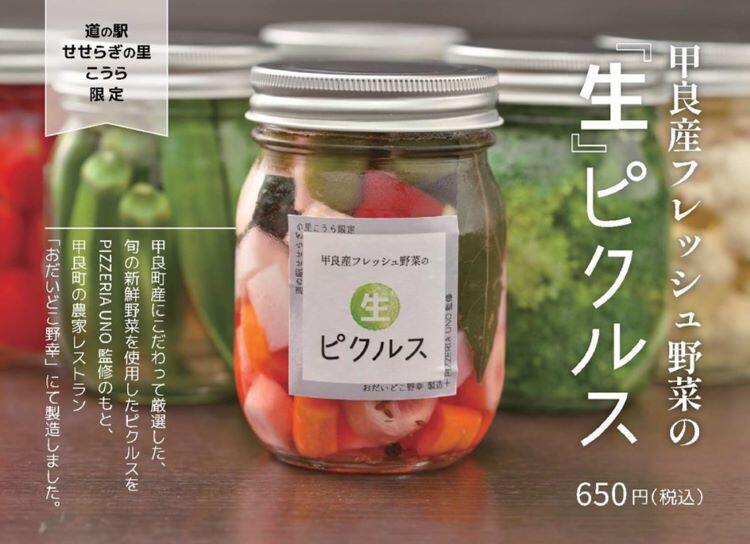
Aiming to Revitalize the Region by Expanding "Sixth Industrialization within the Region"
In this article, we have mainly introduced the example of local sixth-industry developing efforts in Kora Town, Shiga Prefecture, where PCKK is involved in the management and operation of this roadside station as a designated manager.
In local governments that do not have specialty products or where the number of people working in agriculture is declining rapidly, I believe it will be difficult to achieve sixth-industry development, in which agricultural workers are involved in all management operations from production (primary) → manufacturing and processing (secondary) → farm restaurants, sales, etc. (tertiary).
We believe that it would be effective in any municipality for roadside stations to utilize their "sales channels (sales floors)" and "customer needs" to work with local agricultural production organizations (primary industry) and processed food businesses (secondary industry) to achieve "local sixth-industry development" and revitalize the local area.
As the designated manager roadside station, and through consulting to other designated managers roadside station, we will contribute to "regional revitalization through the development of sixth-sector industries within the region," creating a future for the region together with local producers and business operators, rather than just working on roadside station alone.





